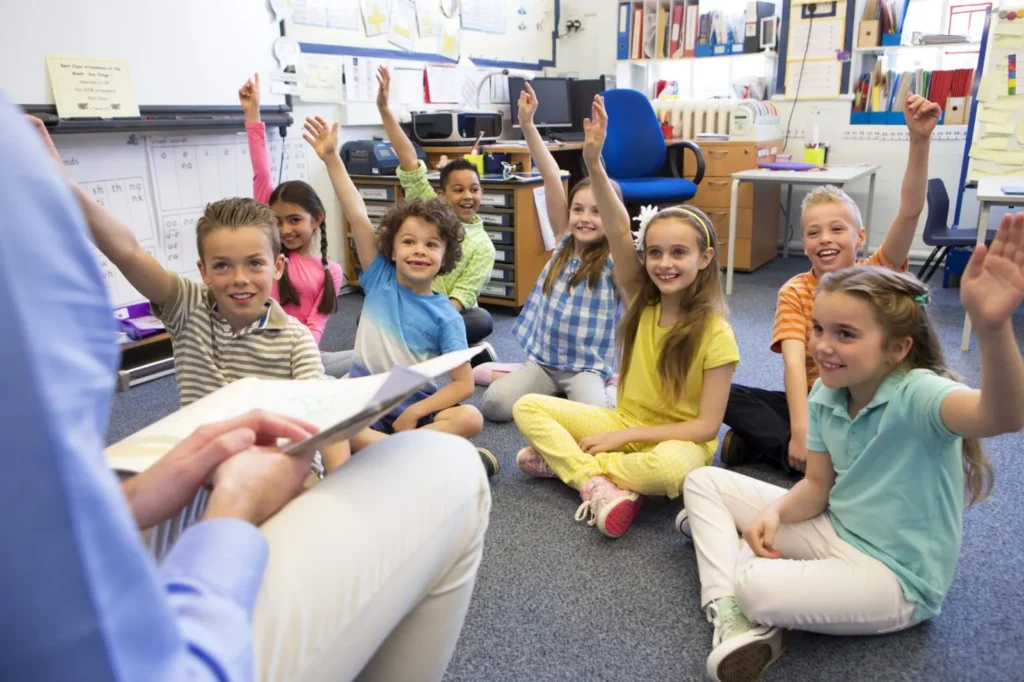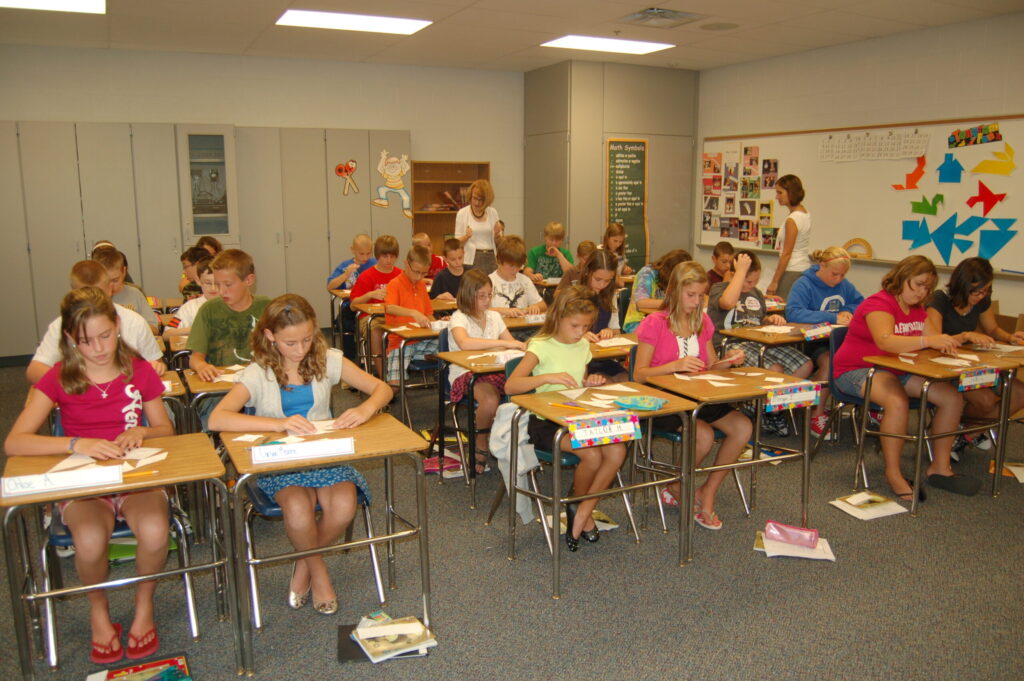Middle School Educational Program
Top-Notch Education Tailored for You—Available On-Demand!
Our Middle School program is specifically crafted to provide students with the essential tools they need for a successful transition to high school.
The middle school years are a pivotal phase in a student’s academic journey, bridging the gap between childhood and young adulthood. This unique period is marked by significant changes, challenges, and a wealth of new experiences that shape a student’s future. Education during these years is crucial for laying the foundation for future success.
At Nest Bahamas, we offer a diverse array of academic options and online middle school programs designed to meet these needs. It’s important for students and parents to explore these options and understand the requirements to ensure a smooth progression from middle school to high school and beyond.
Our dedicated team of BVS School administrators, teachers, and counselors is here to guide students in making informed decisions and optimizing their academic experiences. We encourage every student to leverage the resources available through our program to map out a successful academic path. With the support provided at BVS, students have the opportunity to achieve success in their secondary education and become productive members of society.

A Curriculum Tailored to Accommodate Every Learning Style
This method enables students to progress at their own pace, whether they prefer to advance quickly or take their time to understand the material.
They Learn on Their Terms!

- 6th Grade/Elementary
The 6th-grade academic experience includes participation in the following courses:

- 7th Grade
The 7th-grade academic experience includes participation in the following courses:

- 8th GRADE
The 8th-grade academic experience includes participation in the following courses:
Language Arts 1 Semester 1 explores several types of literature. Students will be expected to write essays, including a comparison-contrast essay, a how-to essay, a short story, and a response to literature. Students will read intriguing stories written by famous and influential authors. The course will cover the writing process and effective writing techniques, and students will produce their own pieces of literature in multiple genres. Proper conventions of grammar will be reinforced.
Semester 2
Successful completion of Language Arts 1 Semester 2 or equivalent course work is required before enrolling in Language Arts 6 Semester 2. This course explores several types of literature written by famous, influential authors. In composition, the writing process is emphasized, while students produce their own short stories, comparison-contrast essays, and how-to essays. Proper conventions of grammar are covered. Grammar topics include nouns, pronouns, adjectives, relative and interrogative pronouns, verbs, adverbs, prepositional phrases, adjective phrases, simple sentence structure, punctuating words in a series, and understanding and using clauses.
Semester 1
Before enrolling in Mathematics 1 Semester 1, students should have a solid grasp of basic math concepts. This course aims to build a strong foundation in mathematics, covering essential topics such as decimals, fractions, expressions, equations, graphing, measurement, and statistics. Students will be introduced to ratios, percentages, and geometry, as well as techniques for collecting and interpreting data and representing it through graphs. The curriculum includes recognizing patterns, working with variables, understanding prime numbers, factoring, and applying divisibility rules, along with performing arithmetic operations with fractions.
Semester 2
To enroll in Mathematics 1 Semester 2, students must have successfully completed Mathematics 1 Semester 1 or an equivalent course. This course will delve into ratios and proportions, explore geometry concepts including triangles, angles, perimeter, and area, and advance to topics such as circles, 3-D shapes, surface area, and volume of various prisms. Additionally, students will investigate graphing techniques and the application of integers in real-world scenarios.
Sixth-grade science is divided into three main fields: life science, physical science, and earth science.
Life Science:
- Cells are the basic building blocks of all living things.
- Every cell originates from another cell.
- Cells perform essential functions that support life.
- Understanding different levels of organization within organisms.
Physical Science:
- Matter is composed of tiny particles called atoms.
- Exploring the various states of matter.
- Different forms of energy, including kinetic and potential energy.
- Motion involves both speed and direction.
Earth Science:
- Understanding the properties of minerals.
- Identifying and classifying igneous, metamorphic, and sedimentary rocks.
- Learning about how igneous, metamorphic, and sedimentary rocks are formed.
- Studying the process of weathering.
Semester 1
In the first semester of Social Studies in World History, students are expected to demonstrate a solid understanding of the concepts covered. This course spans the breadth of world history, from the dawn of human civilization to the present day, emphasizing the interplay between geography and history. Key topics include the Stone Age, the Persian Empire, and ancient Egypt’s scientific and medical advancements. The curriculum also covers world religions such as Hinduism and Buddhism, early Chinese and Greek societies, and the rise and fall of the Roman Empire. The final units explore the Byzantine Empire, Muslim and Islamic beliefs, the Ottoman Empire, and various African regions. Throughout the course, students will engage with interactive online activities and Discovery Channel School videos that enrich their understanding of world history. The course textbook offers reading support and aids in developing map, reading, writing, and geography skills.
Semester 2
Before enrolling in World History Semester 2, students must have successfully completed Semester 1 or an equivalent course. This semester covers history from the Age of Discovery to the modern day. Students will explore early civilizations in the Americas, Europe during the Middle Ages, the Renaissance, and the Reformation periods. The course then progresses to the rise of monarchies, the English, American, and French revolutions, and concludes with studies on World War I, World War II, the Cold War, and the post-1945 world.
Semester 1 & 2
In Language Arts, students will delve into grammar, literature, and composition. They will explore grammar topics such as pronouns, clauses, and subjects and predicates. The literature curriculum primarily includes short stories, helping students understand literary elements and devices like foreshadowing, point of view, and characterization. Through various reading selections, students will enhance their reading comprehension, develop vocabulary, and practice making inferences. Writing assignments will include two compare and contrast essays, a fictional narrative, and a persuasive essay.
Semester 1
Before starting Mathematics 2, students should have a firm grasp of the concepts from Mathematics 1 in both Semester 1 and 2. In Mathematics 2, Semester 1, students will delve into decimals, equations, factors, fractions, integers, proportions, rates, and ratios. They will practice addition, subtraction, multiplication, and division of fractions, decimals, and integers. Additionally, they will learn to solve one-step equations and apply proportions to tackle real-world problems. Students will also explore the coordinate plane, focusing on ordered pairs, linear and nonlinear functions, and patterns. Resources like videos, games, and practice problems will be available to reinforce these key concepts. The knowledge gained in Math 7 Part 1 is essential for Math 7 Part 2 and future mathematics courses.
Semester 2
To enroll in Mathematics 2, Semester 2, students must have successfully completed Mathematics 2, Semester 1, or an equivalent course. In this semester, students will advance their skills by solving two-step equations and exploring inequalities. The course will provide a strong mathematical foundation through topics such as geometric concepts and probability. Geometry topics will cover lines, rays, segments, angles, triangles, quadrilaterals, circles, irregular figures, prisms, and cylinders. In probability, students will examine experimental and theoretical probability, as well as permutations and combinations. Additionally, the course will revisit percentages from Math 7 Part 1. Students will have access to videos, online games, and practice problems to reinforce these concepts.
Here’s a rephrased version of the text:
Students will expand on their 6th-grade curriculum by revisiting the nature of science and exploring the scientific method. They will:
Scientific Method:
- Apply the scientific method to investigate questions related to their own experiences.
Sound and Light Properties:
- Discover the properties of sound and light, including the principles of light reflection and the reasons why some materials are transparent while others are not.
Laws of Thermodynamics:
- Explore energy transformations and understand the first and second laws of thermodynamics.
Earth History:
- Examine the rock cycle and different types of rocks to uncover insights about Earth’s history. They will also study geological processes such as earthquakes and volcanoes to understand how the Earth changes over time.
Ecosystems and Food Chains:
- Learn about ecosystems, including their capacity to support life, their vulnerabilities, and the concepts of biodiversity and symbiosis. Students will explore the flow of energy through ecosystems by interpreting food chains and food webs, and investigate how species evolve through natural selection and environmental changes.
Genetics:
- Delve into heredity and reproduction, including using Punnett squares to predict offspring traits.
Semester 1
In United States History, students will be encouraged to adopt a geographer’s perspective by exploring the Earth through the five themes of geography. They will use these themes to examine the locations of regions, ethnic groups, landforms, and trade routes, and investigate why these elements are situated where they are. By addressing these fundamental questions, students will gain a deeper understanding of the geography, history, culture, regions, and contemporary issues impacting the Americas, Europe, and Russia.
Semester 2
To enroll in United States History Semester 2, students must have successfully completed Semester 1 or an equivalent course. This course builds on the geographical tools and concepts learned in Social Studies 7 Part 1, focusing on the geography, history, culture, religions, and contemporary issues of Asia, Africa, and the Pacific World. Through an interactive textbook, students will discover how historical events have shaped these regions and explore the vibrant, ongoing cultural developments in each area.
Semester 1
Before starting this course, students should have a solid grasp of the concepts and ideas from Language Arts 2, Semesters 1 and 2. In Language Arts 3, students will delve into literary concepts through reading, interpreting, and writing about various forms of literature and cultural texts. The course will cover a wide range of readings and explore different literary genres, narrative structures, characterization, literary devices, themes, style, and grammar.
Semester 2
Language Arts 3, Semester 2 will expand on the concepts from Semester 1 and introduce new material. Successful completion of Language Arts 3, Semester 1 or an equivalent course is required. This semester covers diverse genres of literature, grammar, writing, and vocabulary, focusing on nonfiction elements, real-world reading applications, themes, drama, and research. Emphasis is placed on enhancing reading skills and comprehension through effective reading strategies tailored to various genres. Students will practice these skills through literary analysis and essay writing. Additionally, a research project will be included, teaching students about quality research methods, citation practices, and formal writing techniques.
Semester 1
Before enrolling in Mathematics III, students should have a solid grasp of the concepts from Mathematics Semester 1 and 2. This course covers a range of topics including rational numbers, algebraic equations, graphs and functions, real numbers, exponents, and the coordinate plane. Students will explore how to apply these abstract algebraic concepts to real-world situations. Through video tutorials, online math activities, and self-check quizzes, students will receive the visual and interactive instruction needed to understand these concepts, laying a strong foundation for advanced math courses.
Semester 2
To enroll in Mathematics III Semester 2, students must have successfully completed Mathematics III Semester 1 or an equivalent course. This semester continues from where Semester 1 left off, focusing on preparing students for Algebra 1. Topics include solving multi-step equations, graphing lines, interpreting slope, as well as studying angles, polygons, and the volume of solid figures. Elementary statistics will also be introduced. Students will benefit from video tutorials, online math activities, and self-check quizzes designed to provide the visual and interactive instruction needed for a deeper understanding of these concepts and to prepare for more advanced mathematics courses.
The 8th-Grade Science Curriculum provides a deeper exploration into physical sciences, covering topics such as chemistry, physics, and astronomy. Students will revisit the fundamentals of science and learn about the scientific method.
Energy:
- Different Forms of Energy
- Energy Transformation
- Energy Classification
Matter and Energy:
- History and Process of Photosynthesis
- Leaf Anatomy
- Overview of Photosynthesis
- Cellular Respiration
- Carbon Cycle
The Universe:
- Understanding the Universe
- Composition of the Universe
- Types of Stars
- Star Life Cycles
Our Solar System:
- Modeling and Structure of the Solar System
- The Sun’s Role
- Interactions Between Earth, Moon, and Sun
Exploring Space:
- Measuring Distances in Space
- Introduction to Spectroscopy and the Electromagnetic Spectrum
- Spectral Analysis
- Future Directions in Space Exploration
Semester 1
Before enrolling in Civics, students must have successfully completed United States History Semester 1 and 2 or equivalent coursework. This course provides an in-depth exploration of American history and society, starting with the initial human migrations to the Americas and the European colonization. It covers the founding of the United States, the Reconstruction era following the Civil War, and the causes and effects of the French and Indian War. Students will study pivotal events such as the First Continental Congress, the Declaration of Independence, and the early challenges of governing a new nation. The course also examines the growth of the United States, including its political developments in the early 1800s, issues of slavery, and territorial expansion. Key topics include Manifest Destiny, the Civil War, and the Reconstruction of post-Civil War America.
Semester 2
Students must have successfully completed Civics Semester 1 or equivalent coursework before enrolling in Civics Semester 2. This course continues the exploration of American history, beginning with the conclusion of the Reconstruction era and extending to contemporary events. The curriculum covers the Old West, the mining and railroad industries, and the impact of the Nineteenth Amendment, which granted women the right to vote. Students will delve into historical events including the Spanish-American War, World War I and II, the Great Depression, the Holocaust, the Korean War, and the Cold War. The course also explores the Civil Rights Movement and the presidencies of Kennedy, Johnson, Nixon, and Reagan. Additionally, students will study the September 11, 2001 terrorist attacks and America’s role in the global economy.
LOCATION: BAHAMAS
Nassau, New Providence & The Family Islands
COMMUNICATION
Students can speak to their teachers for assistance
COUNSELORS
Each student will have a school counselor assigned